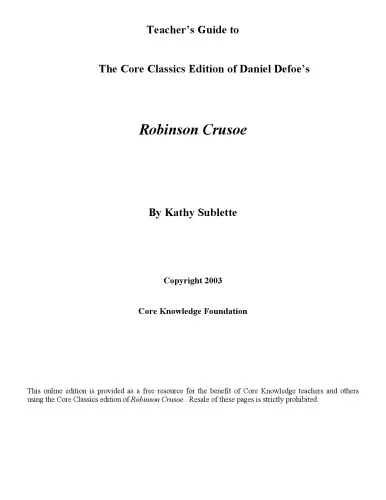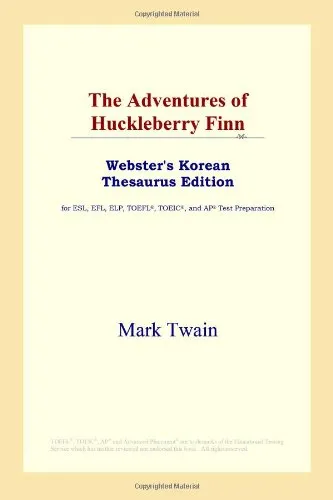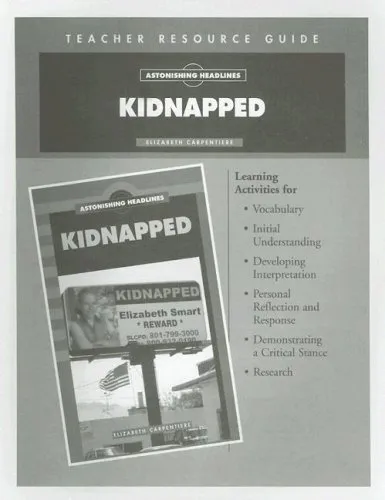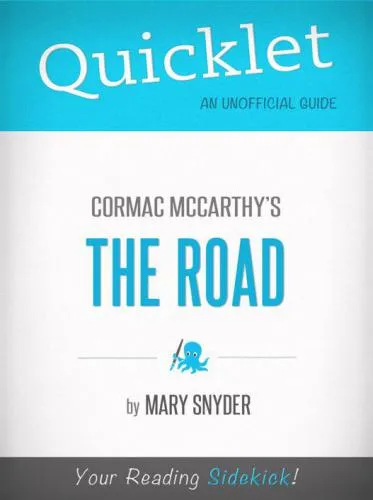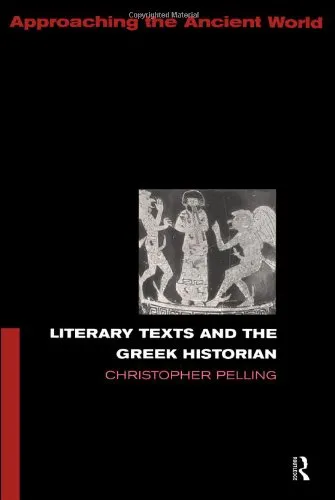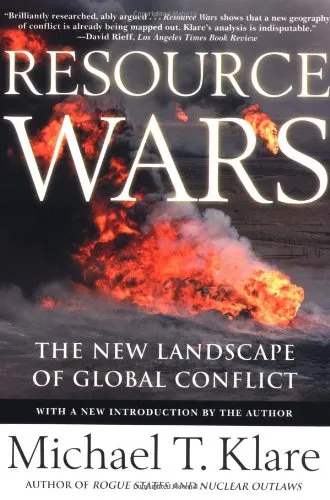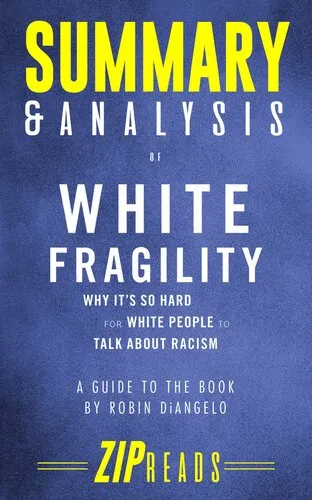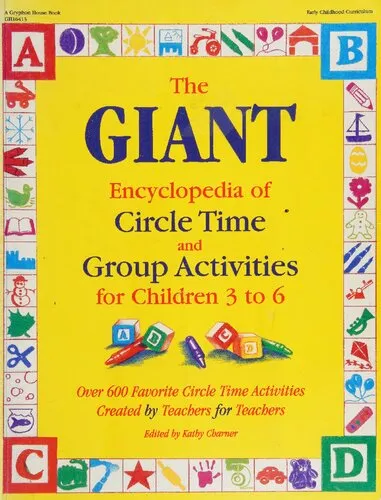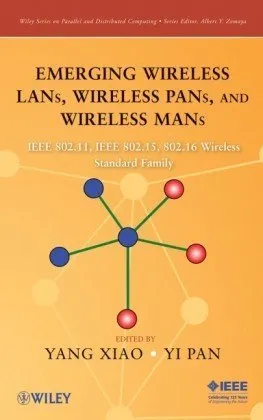Teacher’s Guide to The Core Classics Edition of Daniel Defoe’s Robinson Crusoe
4.5
Reviews from our users

You Can Ask your questions from this book's AI after Login
Each download or ask from book AI costs 2 points. To earn more free points, please visit the Points Guide Page and complete some valuable actions.Related Refrences:
Welcome to the comprehensive guide tailored for educators navigating 'The Core Classics Edition of Daniel Defoe’s Robinson Crusoe'. This Teacher’s Guide is meticulously crafted to enhance the teaching and understanding of one of literature’s timeless adventures. It seeks to provide educators with the necessary tools and insights to bring this classic tale to life in the classroom, ensuring that students not only engage with the narrative but also derive meaningful insights from it.
Detailed Summary of the Book
Daniel Defoe’s 'Robinson Crusoe' is a pioneering novel that delves into themes of adventure, survival, and self-reliance. The story unfolds with the protagonist, Robinson Crusoe, a young and impulsive adventurer, who defies his family's expectations and sets sail on various voyages. However, his life takes a dramatic turn when he finds himself shipwrecked on a deserted island. Defoe masterfully narrates Crusoe’s struggles, as he learns to survive using his wit and the scant resources available. Over the course of twenty-eight years, Crusoe transforms this isolated locale into his home while grappling with isolation and spiritual awakening.
The introduction of Friday, a native whom Crusoe saves from cannibals, provides a significant pivot in the narrative. Their relationship develops with layers of friendship, power dynamics, and cultural exchange. Through its vivid portrayal, 'Robinson Crusoe' not only ignites imagination but also invites reflection on broader themes such as colonialism and human resilience.
Key Takeaways
- Survival and Adaptability: Crusoe’s ability to adapt to his new environment illustrates the human capacity for resilience and innovation in the face of adversity.
- Isolation and Self-Discovery: The novel explores the psychological impact of solitude, leading to Crusoe’s profound personal growth and spiritual reflection.
- Civilization and Savagery: The interaction between Crusoe and Friday opens conversations about cultural relativism, identity, and the effects of colonialism.
Famous Quotes from the Book
Throughout the novel, several quotes stand out for their depth and relevance. They include:
- "It is never too late to be wise."
- "Thus fear of danger is ten thousand times more terrifying than danger itself."
- "All our discontents spring from the want of thankfulness for what we have."
These lines encapsulate the novel’s underlying themes, offering profound insights into human nature and experience.
Why This Book Matters
'Robinson Crusoe' holds a significant place in literary history as one of the earliest examples of the novel as a literary form. Its detailed depiction of Crusoe’s ingenuity and indomitable spirit resonates with readers across the ages. The novel not only functions as an adventurous tale but also fosters critical thinking about colonialism, morality, and the environment.
In an educational context, 'Robinson Crusoe' provides a fertile ground for discussions surrounding European exploration and imperialism. It prompts students to reflect on ethical and social issues, encouraging a deeper understanding of historical context and its relevance to contemporary themes. Furthermore, Defoe’s narrative style and intricate detailing make it an exemplary piece for analyzing narrative techniques and character development.
Ultimately, this Teacher’s Guide aims to equip educators with the resources to present 'Robinson Crusoe' not just as a story of survival, but as a profound exploration of human perseverance and cultural exchange.
Free Direct Download
You Can Download this book after Login
Accessing books through legal platforms and public libraries not only supports the rights of authors and publishers but also contributes to the sustainability of reading culture. Before downloading, please take a moment to consider these options.
Find this book on other platforms:
WorldCat helps you find books in libraries worldwide.
See ratings, reviews, and discussions on Goodreads.
Find and buy rare or used books on AbeBooks.
1326
بازدید4.5
امتیاز0
نظر98%
رضایتReviews:
4.5
Based on 0 users review
Questions & Answers
Ask questions about this book or help others by answering
No questions yet. Be the first to ask!
